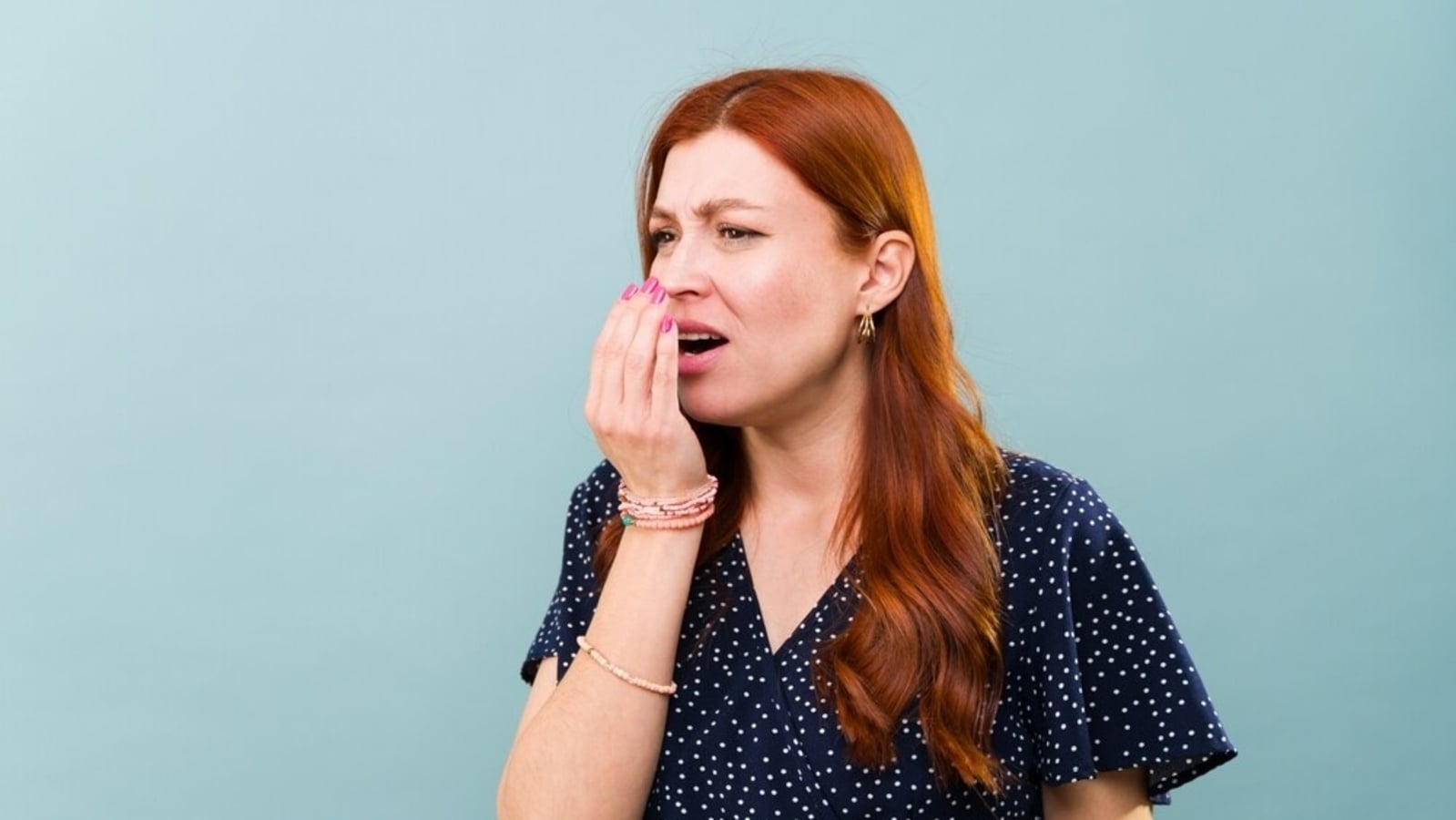
Updated on: Sept 06, 2025 04:15 pm IST
Bad breath can be traced back to several health issues, including both dental and non-dental roots. Know more about the causes here.
About to smile and wave hello at someone, but bad breath makes you self-conscious and clamp your mouth shut (and maybe even run)? It turns out that despite regular brushing, your unpleasant mouth odour may still persist. But this lingering bad breath is far from an awkward, social embarrassment and may point to underlying dental or health issues, which you need to get checked immediately.
ALSO READ: Should you floss before or after brushing? Dentist shares what your ideal oral care routine should be
Dr Nitesh Motwani, oral and maxillofacial surgeon, dental implantologist, and co-founder at Smile Concepts, told HT Lifestyle that patients see such a similar case of lasting bad breath. He said, “My daily experience as a dental professional is also associated with such cases: a patient arrives at the dental office being confused: Doctor, I brush my teeth twice a day; however, my breath still has its unpleasant smell.”
He called this condition ‘halitosis’ and revealed that, despite decent oral hygiene, it may show up. Dr Motwani shared, “Bad breath or halitosis is something nearly everyone has at one time or another. Most of the time, it is taken care of by brushing, flossing, and rinsing.” The dentist reminded us to take it seriously as it may be ‘indicative of underlying problems.’
The dentist listed two sets of causes: the first includes non-oral health issues, ranging from GI problems to diabetes, while the second set is related to the oral cavity. It shows how extensively connected dental health is, as one shouldn’t assume the immediate cause to be a dental-related origin. The underlying issues may even begin elsewhere, throat to hormones.
Here are the 9 causes Dr Motwai shared:
4 non-oral health issues if you have lasting bad breath

- Chronic sinus or throat infection: The foul odour caused by post-nasal drip, tonsil stones, or sinusitis is not removed by brushing.
- Gastroesophagereflux (GERD): This disorder not only causes reflux of gut acids but also causes wearing of teeth and bad breath.
- Diabetes: Uncontrolled diabetes can lead to diabetic keto acidosis, which has a typical fruity odour.
- Liver or kidney disease: In very rare situations, systemic organ dysfunction may occur in the form of persistent halitosis. That is the reason why neglecting bad smell and using mouthwash or mints is not enough.
5 oral-related causes behind bad breath

- Periodontal gum disease: It is one of the most widespread offenders. Once the bases of the gumline are filled with plaque and tartar, bacteria create sulfur compounds that are smelly. A simple brush will never reach these deeper pockets, making professional cleaning the only way to clean them.
- Bacteria on tongue: Millions of bacteria are present in the tongue and particularly in its rough back part. Even when brushing teeth, one may fail to clean the tongue properly, allowing food debris, dead cells and bacteria to build up, giving off odours.
- Dry mouth (Xerostomia): The mouth may become dry due to reduced salivation (dehydration, stress, some medications, mouth breathing), which allows the odour-causing bacteria to reproduce.
- Eating foods with a strong smell: The aromatic foods, such as onions, garlic, coffee, alcohol, etc. may remain in the system despite brushing. An unpleasant smell is also caused by smoking and tobacco consumption, as well as gum damage and staining.
- Ill-fitting dental work: Poorly fitted crowns, braces, or dentures can harbour food debris, making them a breeding place of bacteria. On the same note, decay and odour can be present in untreated cavities or leaking fillings.
7 tips to reduce bad breath

You can keep your mouth fresh and eliminate bad breath by adopting a few simple yet very effective daily habits that target both your oral hygiene and overall health. Dr Motwani revealed 7 tips:
- Periodic dental check-ups ensure to check the status of the oral cavity, a dentist can check for cavities, gum issues or any dental problems that need attention
- Routine cleaning and polishing. Those deep crevices that cannot be reached with a brush can only be cleaned with dental instruments, and so routine cleaning is advised every 6 months
- Tongue cleaning. Scrape the tongue with a tongue cleaner to clear off any buildup.
- Hydration: Ample water clears off the food particles lodged between teeth, promotes salivation.
- Use of sugar-free gums: This can also help in increasing saliva production.
- Lifestyle changes: Reduce refined foods and eat vegetables, and reduce smoking.
- Systemic checks: Any systemic checks as advised by the dentist on examination, like liver or kidney tests.
Note to readers: This article is for informational purposes only and not a substitute for professional medical advice. Always seek the advice of your doctor with any questions about a medical condition.

Catch your daily dose of Fashion, Taylor Swift, Health, Festivals, Travel, Relationship, Recipe and all the other Latest Lifestyle News on Hindustan Times Website and APPs.
Catch your daily dose of Fashion, Taylor Swift, Health, Festivals, Travel, Relationship, Recipe and all the other Latest Lifestyle News on Hindustan Times Website and APPs.






